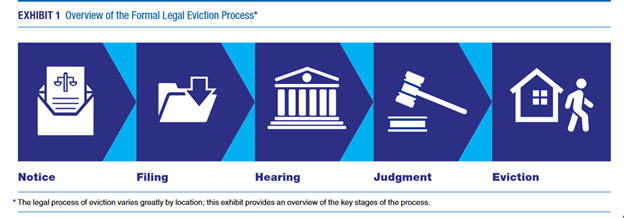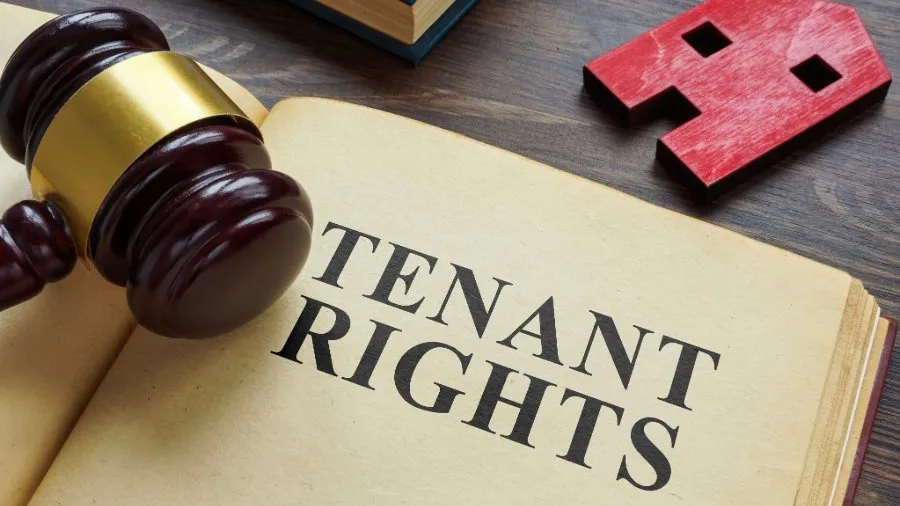The eviction process in Riverside can be complex, especially for first-time landlords. Understanding the legal steps and rights involved is critical to avoid costly mistakes and ensure compliance with California laws. Here's a more in-depth look at the process, with an emphasis on the legal procedures, rights, and responsibilities you must follow to navigate eviction successfully.
What Are The Grounds for Eviction?
California is a tenant-friendly state, meaning landlords need to ensure they have valid reasons for evicting a tenant. The primary grounds for eviction are non-payment of rent, lease violations, and engaging in nuisance or illegal activities. For non-payment of rent, landlords can begin the process by issuing a Three-Day Pay Rent or Quit Notice, giving tenants a short window to pay overdue rent or vacate. For lease violations, landlords can issue a Three-Day Cure or Quit Notice, giving tenants the opportunity to correct the violation within three days or face eviction. If the tenant is involved in illegal activities or causes a nuisance, landlords must document the behavior and serve the tenant with the appropriate notice.

What Are The Notice Requirements?
Landlords must serve the appropriate notice to tenants before initiating the eviction process. Depending on the reason for eviction, the following types of notices may apply:
- Three-Day Pay Rent or Quit Notice: This notice is required for non-payment of rent and gives tenants a set time to pay overdue rent or move out.
- Three-Day Cure or Quit Notice: This notice applies when a tenant violates the terms of their lease. It allows them to either fix the violation or vacate the premises within three days.
- 30/60-Day Notice: Used for "no-fault" evictions, where the landlord ends the tenancy without providing a specific reason. A 30-day notice is typically required for tenants who have been in the rental for less than a year, while a 60-day notice is required for tenants who have occupied the property for over a year.
What is an Unlawful Detainer Lawsuit?
If the tenant fails to comply with the notice, landlords may need to file an Unlawful Detainer lawsuit to formally start the eviction process. This lawsuit is the legal way to seek eviction through the court system. Once the complaint is filed, the landlord must ensure proper service of legal documents to the tenant, following specific guidelines. Tenants have the right to respond to the lawsuit, presenting defenses such as improper notice, noncompliance with local laws, or retaliation.
Complying With The Tenant Protection Act of 2019:
Under the Tenant Protection Act of 2019, landlords must have "just cause" to evict a tenant. If the eviction does not meet the requirements of just cause, it is considered a "no-cause" eviction, and the landlord may be required to provide relocation assistance to the tenant, such as paying for moving expenses, returning the full security deposit, or offering rent forgiveness.
How The Court Process Works:
During the court proceedings, both the landlord and tenant present their cases. Landlords should be well-prepared with evidence, including notices served, communications with the tenant, and any other supporting documents. If the court rules in favor of the landlord, a Writ of Possession is issued, allowing the landlord to take back the property. The sheriff can enforce this writ, ensuring the tenant vacates the premises.
What Rights Do The Tenants Have?

Tenants have certain rights throughout the eviction process, including the right to a habitable living environment. Landlords must address any maintenance issues promptly to avoid disputes. Additionally, tenants are protected from retaliation, meaning landlords cannot evict tenants for exercising their rights, such as reporting code violations. Tenants also have access to legal aid resources and can seek assistance during the eviction process.
What Should You Do Post-Eviction?
Once the eviction is complete, landlords can change the locks to secure the property. However, landlords must follow legal procedures to avoid liability for actions like wrongfully disposing of tenant belongings. California law dictates specific steps for handling tenant property left behind after an eviction. It's essential for landlords to understand these rules to avoid potential legal consequences.
Final Tips for Landlords:
Landlords should keep detailed documentation of lease violations, communications with tenants, and notices served. This will be invaluable in court if the eviction proceeds. Seeking legal advice before initiating the process is highly recommended, as eviction laws in California are constantly evolving. Landlords should also be aware of the Fair Housing Act and ensure that the eviction process is conducted without discrimination.
Conclusion:
Navigating the eviction process in Riverside requires understanding the legal landscape and following all necessary steps to ensure compliance with California's landlord-tenant laws. By being diligent, staying informed, and seeking legal guidance when needed, landlords can successfully manage their properties and avoid costly mistakes. If you're looking for professional property management services in Riverside, feel free to reach out to PMI Riverside. We are here to help you manage your rental properties with confidence.

